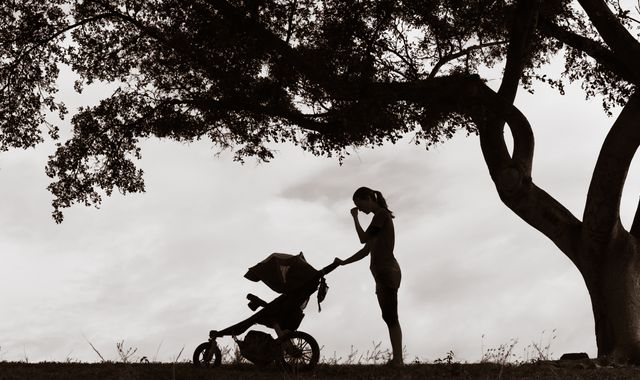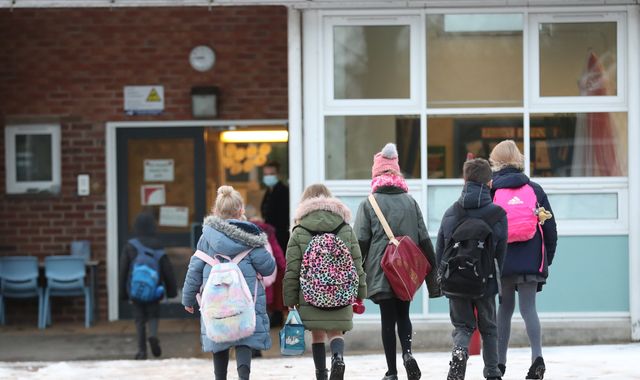Post-natal depression: Number of cases among men and women has risen over past year
Written by News on 28/02/2021
The number of men and women suffering with post-natal depression has risen over the past year, Sky News has learned.

The PANDAS Foundation has seen a 240% rise in calls to its helpline since January 2019, as well as a 150% spike in demand for its email service.
As a result, the charity is trying to recruit fathers as volunteers – and is sending out an “urgent” appeal for more funding.
Annie Belasco, the head of PANDAS, said it has had to change to accommodate the different support services it provides.
She added: “Not only are we dealing with a huge spectrum of perinatal mental health, we’re now dealing with other issues really affecting parents.
“General day-to-day stress of having to work from home, flexibility of work, worrying about income, and relationship issues.”
The charity is also seeing more women get in touch who are pregnant and suffering with poor mental health, as well as post-birth.
Kirsty Smillie is one of them. She tried to take her own life last year after struggling through the first lockdown.
The traumatic birth of her baby boy Brody – alongside feelings of “isolation” and “loneliness” – contributed to her breakdown.
She described appearing as “high-functioning” during her darkest periods – even though she felt like she “wasn’t worthy” of her children.
Kirsty explained: “I went into mental health crisis, I felt that everything was my fault, that I wasn’t a good mum.
“I think the darkest, most intrusive thoughts that I had was that – because I wasn’t worthy of these children – I should just get up in the middle of the night and just leave.”
After trying to take her own life, she ended up in a mother and baby unit.
“I felt like everyone else was coping with lockdown and I was lost and I just felt my kids were better off without me,” she said.
Kirsty, like thousands of other new mothers, had little to no face-to-face contact with family, health visitors, or even midwives during the lockdowns.
She has also had to wait exactly one year since she first reached out for help for a therapy appointment.
Men suffering with poor perinatal mental health have described feelings of “detachment” which have been exacerbated by not being allowed to go to scans or appointments.
Alex Croucher has set up Dad 360, offering workshops to new fathers before and after birth.
He said he felt “distant” and “completely detached” from himself after the birth of his son Fraser a year ago.
Alex believes the traumatic birth contributed to this, and then the first lockdown made things worse.
The numbers of men reaching out “don’t define how many men need the help”, he warned.
He added: “Some people, like me, might go through the first six weeks thinking it’s completely normal, this is how it is when you have a kid, when actually you could be struggling.
“It’s also being aware that if your partner shows up with it there’s a higher percentage chance you could get it.”
PANDAS say that, while the pandemic is not causing perinatal illness, “the normal coping mechanisms” parents use “are not working” due to government restrictions.
The charity acts as an early intervention service for the NHS and relies on donations.
It is “urgently calling” for funding, and for the government to help pay for “core costs”.
Anyone feeling emotionally distressed or suicidal can call Samaritans for help on 116 123 or email jo@samaritans.org in the UK. In the US, call the Samaritans branch in your area or 1 (800) 273-TALK
(c) Sky News 2021: Post-natal depression: Number of cases among men and women has risen over past year







